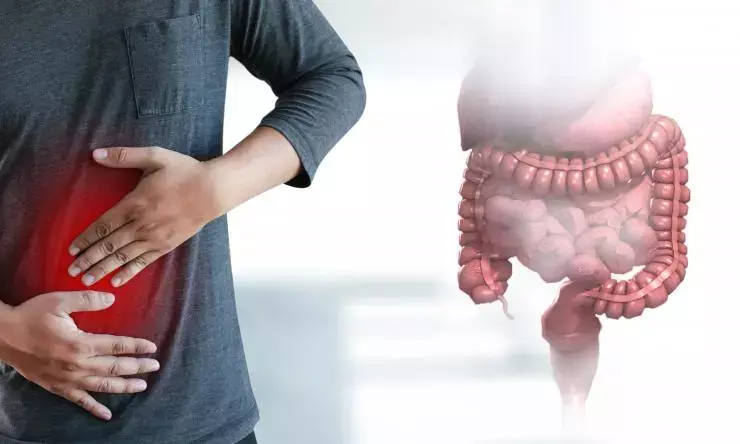- Home
- Medical news & Guidelines
- Anesthesiology
- Cardiology and CTVS
- Critical Care
- Dentistry
- Dermatology
- Diabetes and Endocrinology
- ENT
- Gastroenterology
- Medicine
- Nephrology
- Neurology
- Obstretics-Gynaecology
- Oncology
- Ophthalmology
- Orthopaedics
- Pediatrics-Neonatology
- Psychiatry
- Pulmonology
- Radiology
- Surgery
- Urology
- Laboratory Medicine
- Diet
- Nursing
- Paramedical
- Physiotherapy
- Health news
- Fact Check
- Bone Health Fact Check
- Brain Health Fact Check
- Cancer Related Fact Check
- Child Care Fact Check
- Dental and oral health fact check
- Diabetes and metabolic health fact check
- Diet and Nutrition Fact Check
- Eye and ENT Care Fact Check
- Fitness fact check
- Gut health fact check
- Heart health fact check
- Kidney health fact check
- Medical education fact check
- Men's health fact check
- Respiratory fact check
- Skin and hair care fact check
- Vaccine and Immunization fact check
- Women's health fact check
- AYUSH
- State News
- Andaman and Nicobar Islands
- Andhra Pradesh
- Arunachal Pradesh
- Assam
- Bihar
- Chandigarh
- Chattisgarh
- Dadra and Nagar Haveli
- Daman and Diu
- Delhi
- Goa
- Gujarat
- Haryana
- Himachal Pradesh
- Jammu & Kashmir
- Jharkhand
- Karnataka
- Kerala
- Ladakh
- Lakshadweep
- Madhya Pradesh
- Maharashtra
- Manipur
- Meghalaya
- Mizoram
- Nagaland
- Odisha
- Puducherry
- Punjab
- Rajasthan
- Sikkim
- Tamil Nadu
- Telangana
- Tripura
- Uttar Pradesh
- Uttrakhand
- West Bengal
- Medical Education
- Industry
ketorolac increases risk of anastomotic leak after colorectal surgery

The use of ketorolac increases the risk of anastomotic leak after colorectal surgery, according to a recent study published in the Frontiers in Surgery.
This meta-analysis aimed to evaluate whether ketorolac administration is associated with an increased anastomotic leak rate after colorectal surgery.
The literature was searched using the Web of Science, Embase, and PubMed databases, and the search ended on May 31, 2020. The Newcastle–Ottawa Scale was used to assess methodological quality. Statistical heterogeneity was assessed using the Chi-square Q test and I2 statistics. Subgroup analysis was performed, and Egger's test was used to assess publication bias.
Results:
This meta-analysis included seven studies with 400,822 patients. Our results demonstrated that ketorolac administration after surgery increases the risk of anastomotic leak [OR = 1.41, 95% CI: 0.81–2.49, Z = 1.21, P = 0.23]. Low heterogeneity was observed across these studies (I2 = 0%, P = 0.51). The results of subgroup analysis showed that the use of ketorolac in case–control and retrospective cohort studies significantly increased the risk of anastomotic leak (P < 0.05). Furthermore, the subgroup analysis revealed that ketorolac use increased anastomotic leak rate in patients in the United States and Canada, and ketorolac plus morphine use did not increase anastomotic leak rate in Taiwanese patients (P < 0.05). No significant publication bias was observed (P = 0.126). Moreover, the analysis of risk factors related to anastomotic leak rate indicated that the total use of ketorolac did not increase the risk of anastomotic leak similar to the control group (P > 0.05).
Thus, the researchers concluded that the meta-analysis indicates that the use of ketorolac increases the risk of anastomotic leak after colorectal surgery.
Reference:
Ketorolac Administration After Colorectal Surgery Increases Anastomotic Leak Rate: A Meta-Analysis and Systematic Review by Wen Chen et al. published in the Frontiers in Surgery.
https://www.frontiersin.org/articles/10.3389/fsurg.2022.652806/full
Keywords:
Wen Chen, Jing Liu, Yongqiang Yang, Yanhong Ai, and Yueting Yang, Ketorolac Administration for colorectal surgery, Colorectal Surgery Increases Anastomotic Leak Rate, Frontiers in Surgery, Colorectal Surgery and Anastomotic Leak Rate, Ketorolac and Colorectal Surgery
Dr. Shravani Dali has completed her BDS from Pravara institute of medical sciences, loni. Following which she extensively worked in the healthcare sector for 2+ years. She has been actively involved in writing blogs in field of health and wellness. Currently she is pursuing her Masters of public health-health administration from Tata institute of social sciences. She can be contacted at editorial@medicaldialogues.in.
Dr Kamal Kant Kohli-MBBS, DTCD- a chest specialist with more than 30 years of practice and a flair for writing clinical articles, Dr Kamal Kant Kohli joined Medical Dialogues as a Chief Editor of Medical News. Besides writing articles, as an editor, he proofreads and verifies all the medical content published on Medical Dialogues including those coming from journals, studies,medical conferences,guidelines etc. Email: drkohli@medicaldialogues.in. Contact no. 011-43720751


